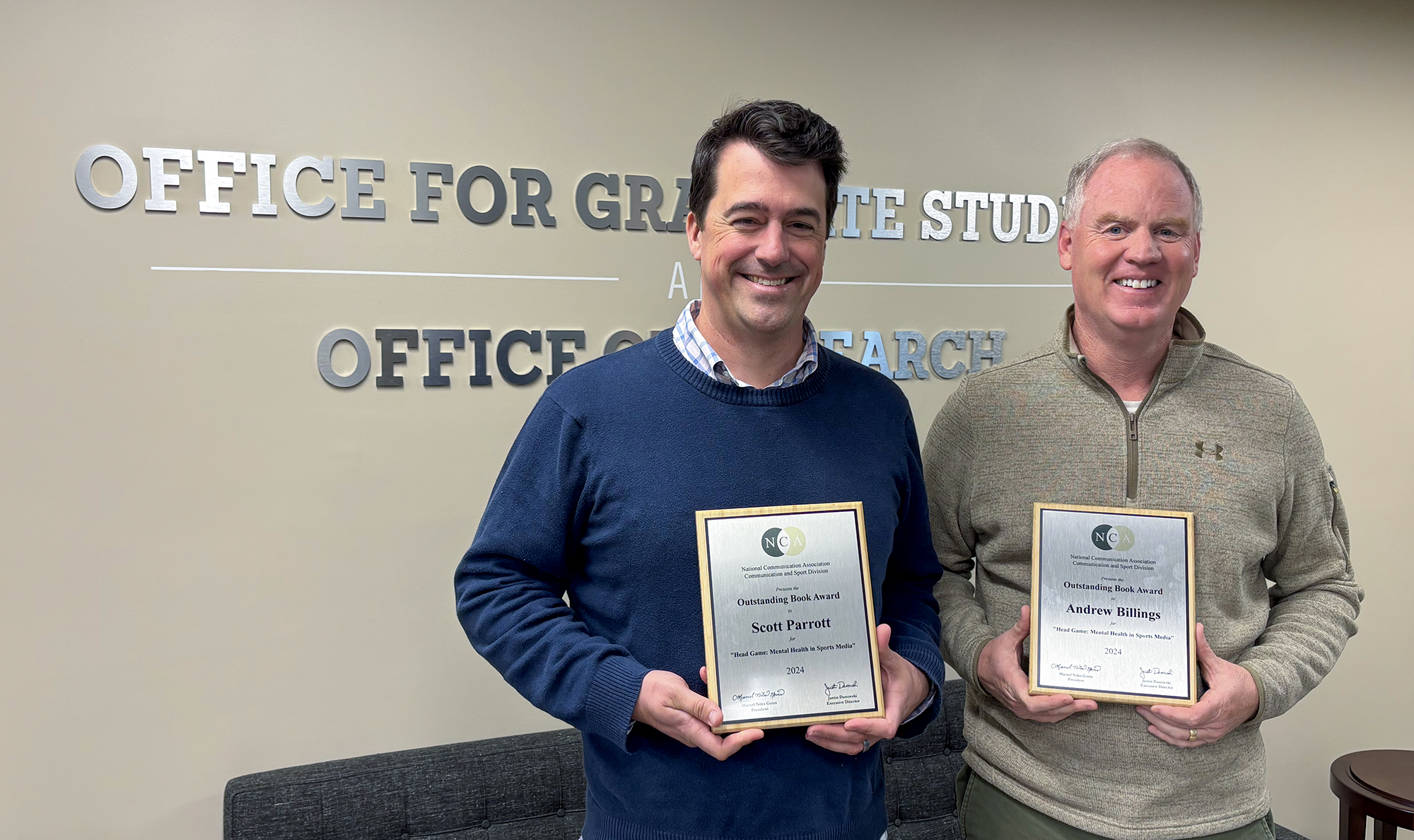Professors Andrew Billings, PhD, and Scott Parrott, PhD, received the National Communication Association’s Communication & Sports Division’s Book Award for their book, Head Game: Mental Health in Sports Media. The two wrote the book together, with Billings focused on sports culture and Parrot on media portrayals of mental health.
“It’s an incredible honor for our work to be recognized by our colleagues,” said Parrott, a professor in Journalism & Creative Media. “We feel the subject matter – mental health and sports media – is an important one, and it’s great to have a vote of confidence from the National Communication Association.”
“The award is a sign that we are accomplishing our main objective: people are actively reading and consulting the book” added Billings, “As much as it’s great to be honored, it’s even better to know it should cause others to seek out the book.”
Head Game: Mental Health in Sports Media examines the changing views of mental health in the world of sports and how the modern generation of athletes are helping untangle the misconceptions around mental health by sharing their own experiences. The book uses interviews with key athletes, journalists, sportscasters, as well as organizational and league leaders to show how sports media has been, and continues, to be used to advance a better understanding of mental health.
“We’d begun some initial work focusing on mental health in sports before the pandemic began, but then the pandemic hit and we realized this was becoming a major issue” said Billings, “With cases such as Naomi Osaka and Simone Biles then being key discussions in society, we wanted to be a part of that discussion.”
The book emphasizes the importance of sharing these experiences in challenging the status quo of downplaying or ignoring mental illness, in other words “toughing it out”, in fear of being benched or even harassed.
“Athletes face unique pressures related to mental health, including pressure to succeed (at all times) on and off the field; threats and insults from anonymous social media users; pressure to maintain their roles and positions on teams; among others” said Parrott, “By supporting open dialogue about mental health, athletes (and others in sport) can nurture better understanding about the lives of athletes, undercut the marketing gimmicks surrounding much of professional athletics, and improve public understanding of mental health.”
Dr. Andrew Billings is a professor in the department of Journalism and Creative Media. He is also the Director of the Alabama Program in Sports Communication and the Ronald Reagan Chair of Broadcasting for the department of Journalism and Creative Media. Additionally, he is also the Co-director of the Beyond Sports Initiative and the Co-editor of Communication & Sport. Beyond Head Game: Mental Health in Sports Media, Billings has written 14 other books and over 140 journal articles and book chapters.
Dr. Scott Parrott is an associate professor in the department of Journalism and Creative Media whose work focuses on how media exposure shapes the public perception of groups, such as veterans or mental health issues.
Head Game: Mental Health in Sports Media can be purchased from the publishers website.
